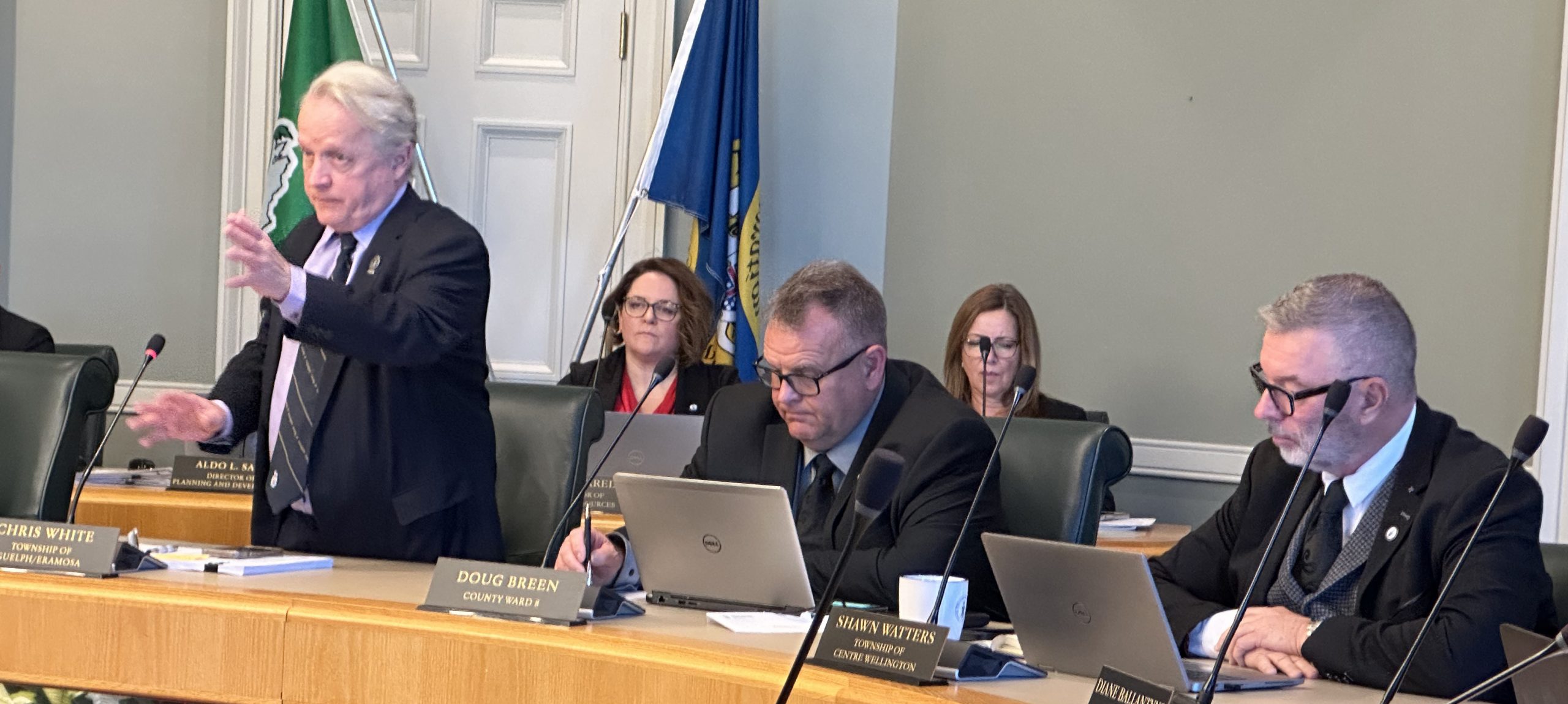GUELPH – Guelph-Eramosa Mayor Chris White will be joining a revamped County of Wellington Police Services Board in April.
Wellington County council voted at the Feb. 29 council meeting to appoint White as one of two county councillors, along with current board chair councillor Earl Campbell, to the board.
Prior to changes to board composition imposed by the province, a single councillor, in addition to the county warden, served on the board.
White, along with two other unnamed county councillors expressed interest in the new position, however the two later withdrew.
Effective April 1, the Ministry of the Solicitor General has approved a Wellington County OPP detachment board composed of:
• three county council members;
• one community representative (chosen by the local board);
• and one provincial appointment seat.
The current board includes two council members, one community representative (former Erin mayor Allan Alls) and two provincial appointees.
Warden Andy Lennox noted there was some urgency to make the additional council appointment right away, as the re-constituted board needs to be in place by April 1, when the Community Safety and Policing Act (CSPA) comes into force.
“Each member of the police services board will have to undergo training to be eligible, and that needs to happen in March,” Lennox explained.
The CSPA will replace the Police Services Act of 1990, and among other changes previously reported by the Advertiser, requires board members to be trained on their roles and responsibilities by April.
Within six months of a member’s appointment to the board, training on human rights, systematic racism, multiculturalism, and rights of Indigenous peoples also must be completed.
“In the past there was no mandatory training for boards,” Ontario Association of Police Service Boards (OAPSB) executive director Lisa Darling told the Advertiser.
The incoming legislation formalizes a training requirement before a member can have a vote on a board.
The training program itself is currently being developed by the province with help from the OAPSB.
Training will be done online in less than a few hours, and include an overview of responsibilities of board members under the legislation, followed by an online test.
Darling agrees with a mandatory training requirement because boards are the first level of oversight for police services.
All boards will have to review and draft policies as well; some boards will only need to update current policy, and others will have to draft new policy.
For example, policies may need to be reviewed surrounding the evaluation of the county’s detachment commander, including reference terms and a procedural bylaw.
The OAPSB is working to assist boards understand how to go about that work.
The association is also providing ancillary training to supplement the province’s training, which Darling said won’t be fulsome enough for ongoing education.
“We’re helping with more practical applications,” Darling said.
Last fall, the county’s board received OAPSB training about the coming legislative changes and budgeting.
Beyond a local change to the board’s composition and formalizing requirements of practices largely already in place, there isn’t much happening at a practical level.
OPP boards also have fewer responsibilities than boards with their own municipal police service. For communities such as the county, which contract policing out to the the OPP as their the provider, the commissioner has more of a direct role in responding to demands in the legislation.
One of the most significant changes in the legislation includes barring former police officers from serving on police boards.
That means the term of current board members Walter Traschel and Ron Faulkner, who were appointed by the provincial government last year, will come to an end in March.
Traschel is a former OPP inspector and county politician. Faulker is a former police chief, OPP inspector and deputy mayor.
The revamped board will still have a single provincial appointee, yet to be named.
At the February council meeting, Campbell said that while he currently serves as chair by virtue of being the council appointee, the chair will be selected by the entire board in the future.
— With files from Jordan Snobelen




